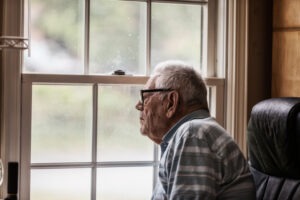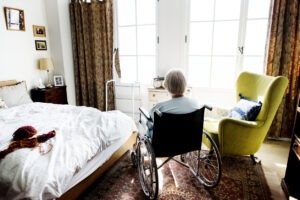You need evidence to establish negligence and fault to sue a nursing home in Massachusetts. The specific evidence required will vary on a case-by-case basis. In general, you may use medical records, hiring and staffing records, financial records, copies of policies and procedures, interviews with former employees, notes from conversations, and photo evidence.
A Boston nursing home abuse lawyer can provide detailed information about forms of evidence that may help in your specific case. You can hire an attorney to collect evidence for your family, answer questions, and guide you through the legal process.
Evidence that Can Help You Sue a Nursing Home
Many forms of evidence can help you successfully sue a nursing home in Massachusetts. Potential evidence can include:
- Video footage from the nursing home that shows abusive actions or neglect
- Photographs that captured the abuse
- Witness statements or personal accounts
- Medical records detailing injuries
- Written internal communications, such as hiring and staffing records, financial records, copies of policies and procedures, and interviews with former employees, that address the abuse
- Insurance claim paperwork
You may also need to establish your relationship with the individual who experienced abuse to file a lawsuit. Various documentation, including birth certificates, may provide this information.
The above list does not contain every possible type of evidence you need to sue a nursing home. An attorney can review the specifics of your situation and provide more detailed information about the types of evidence useful in your case.
What do You Need to Establish to Sue a Nursing Home?
You need evidence to establish negligence if you want to sue a nursing home for abuse or neglect successfully. A lawyer can establish negligence by showing that:
- The nursing home – or another liable party – owed your loved one a duty of care
- The home or liable party breached their duty
- The breach of duty caused injuries to your family member
- The injury sustained by your loved one resulted in damages like physical and emotional pain and suffering.
An attorney can immediately begin collecting evidence to demonstrate negligence and construct a solid claim for your family.
How do Lawyers Collect Evidence to Sue a Nursing Home?
A lawyer can use various investigative techniques to build a claim after you determine what evidence you need to sue a nursing home. Depending on your situation, a law firm may:
- Visit the nursing home and request access to patient records or video
- Investigate to look for previous reports of abuse at the facility
- Collect your loved one’s medical records
- Work with nursing home abuse experts
- Interview former employees and other current residents
Law firms in Massachusetts use different strategies for each client, allowing them to personalize the services they offer.
Do You Have to Sue a Nursing Home?
You may have to sue a nursing home for compensation to cover your family’s financial losses if you find signs of abuse or neglect. However, we know financial losses are the least of your concerns. You may want to recover funds for the pain and suffering of your loved one.
We help you file a claim to address the breach of trust, neglect, and helplessness your loved one experienced. A lawsuit may help in this situation, allowing you to seek compensation for the loss of your loved one’s golden years.
However, you may have other options available to secure fair compensation. In some situations, a nursing home abuse lawyer can help families in your situation secure compensation through an insurance settlement.
Will a Nursing Home Settle?
Occasionally, nursing homes agree to settlements to resolve cases involving abuse more quickly and without additional coverage in the media. You can rely on an attorney to represent you during negotiations, pushing to bring you maximum compensation for all losses.
What Are Signs of Nursing Home Abuse?
Signs of nursing home abuse can include unusual injuries, changes in behavior, and missing items around your loved one’s room. You may need to seek prompt help for a loved one if you notice bedsores, bruises, or other injuries.
Nursing home abuse can take many forms. You may need to file a lawsuit if you suspect a loved one experienced physical abuse, sexual abuse, emotional abuse, or financial abuse. A lawyer can help in all of these circumstances.
Can You Sue After a Fatal Act of Nursing Home Abuse?
A Boston wrongful death lawyer can help your family sue a nursing home after a fatal act of abuse. An attorney can review your situation and see if you qualify to file a claim for compensation to cover a loved one’s medical bills and funeral expenses.
You can rely on a law firm to provide you with compassionate care and guidance through the legal system. An attorney can provide information about what evidence you need to sue a nursing home after the loss of a loved one.
Filing a legal claim cannot bring back a loved one after deadly nursing home abuse or neglect. However, it can help with the complicated emotions your family faces and provide you with a sense of closure.
Speak to Us About Evidence for Suing a Nursing Home
What evidence do you need to sue a nursing home? You need proof that neglect or abuse occurred and that these actions caused your family financial losses. Our team at Jason Stone Injury Lawyers can take care of the investigation for you.
We stay available around the clock as part of our Stone Cold Guarantee®, so you don’t have to wait to get help. You can call or complete our online contact form right now to discuss your next legal steps.
Not Trusting What You’re Being Told?
Better Phone Stone
800-577-5188
 START MY NO OBLIGATION CONSULTATION
START MY NO OBLIGATION CONSULTATION










